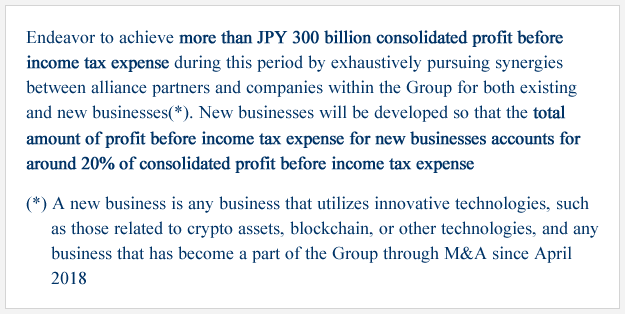
It can be difficult to write a creative brief. You have to translate the vision of your client and avoid jargon and fluff. It is important that your creative brief be clear, simple, understandable and concise so that clients can benefit from it. However, it should not be a complete solution, but a starting point that challenges the design team to think creatively. It should be a brief that's carefully constructed with creativity and care to solve the client’s problem.
Establish a key consumer benefit. (KCB).
A creative brief is a great way to target your marketing efforts. It should focus on one benefit or pain point that the audience has. A key consumer benefit can refer to a feature, an advantage, or an outcome the audience would love to have. A key benefit, or pain point, is the ultimate goal or feeling your audience will have after using the product or services.
Be sure to research the competition and analyze their products or services. Also, consider their target audience when creating a creative brief. This information will allow your company to narrow its focus and pinpoint your niche in the market. A KCB, or key message, should be developed that clearly explains what the product or services will do for customers. Make sure you include testimonials, stories and other information in your creative brief.

Include deliverable dates
Be sure to include delivery dates and deadlines in your creative brief. This will prevent any confusion later. Include brand guidelines and internal messaging. Your creative team will perform better if you provide more detail. Please include the date that you wish to have the project completed. Also, please indicate any revisions or approvals needed. In addition, remember to include the deliverable dates for each stage of the project.
Finally, be sure to include a detailed description of your target audience and your competition. It is important to provide a brief description that is concise and includes your company's branding messages. It will be easier to avoid making endless revisions by having a concise creative brief. Moreover, it will allow your agency to be as clear as possible with all the information you provided.
Include brand guidelines
In your creative brief, include brand guidelines to ensure the work is consistent with the brand's values. These guidelines help the designer understand the brand’s voice and vision so the work they create reflects that vision. Here are some tips for including brand guidelines in your creative brief. These guidelines can be used to create your campaign brief. It should contain these five elements. This guideline will ensure that you don't leave any detail out of your creative brief.
The creative brief should provide a comprehensive understanding of your brand, but should not go into too much detail. The brief should give a quick overview of your brand and target audience with a few paragraphs detailing the goals. The brief should also contain pertinent background information about the brand such as the target market. If the creative team doesn’t know the brand yet, they should be capable of catching up to it and completing the project. A creative brief should also include the brand guidelines along with the deliverables.

Include client's voice
Make sure to include your client's voice in creative briefs. Often, this is the most challenging part. The creative brief is often overwhelming because there is so much to do. These are five common reasons projects fail. All of these reasons do not stem from the creative brief. However, they are all connected to a conflict with the project's artistic elements. Here are some tips to help you write a brief that will appeal to your clients.
The brief should include the key elements of each project. Include your client's voice and style, as this will inform your work. Make sure you include demographic information as well as behavioral insights about your target audience. This will allow your team to create a content strategy. Your messaging must be persuasive and motivate your target audience to take action. Include the client's voice, tone, style, and design in your creative brief.
FAQ
Do I require legal advice?
Yes! Yes. Many consultants sign contracts without seeking legal advice. This can lead into problems down-the-road. If the client terminates an agreement with the consultant before the completion date, what are the consequences? Or, what happens if the consultant doesn't meet the deadlines set forth in the contract?
It's best to consult with a lawyer to avoid potential problems.
Why should you hire consultants?
There are many factors that could lead to you hiring consultants.
-
You may have a problem or project that your organization needs to solve.
-
You want to improve your own skills or learn something new
-
You'd like to work in conjunction with an expert in a specific field
-
You have no other choice but to do the job.
-
You feel overwhelmed with all the information you see and don’t know where it is.
-
It's impossible to afford to hire someone full-time.
Referrals are the best way for you to find a qualified consultant. Ask around to see if you know any good consultants. If you are already acquainted with someone who works as an advisor, ask them for recommendations.
If you choose to use online directories such LinkedIn, make sure to use the "Search People” function to locate consultants in your area.
How can I be a successful consultant?
First, find a subject you're passionate about. Next, you need to establish relationships. Knowing what your clients want and how they work is key. The final step is to provide results.
Although you don't have the ability to do everything perfectly, you must be better than anyone else. You must also have passion for your work. It doesn't suffice just to say "I'm going be a Consultant." You have to believe in yourself, and in what you are doing.
What can I anticipate from my consultant
When you choose your consultant, they should respond within a few working days. They will ask you for information about your business, including the mission, goals, products, and budget. Next, they'll provide a proposal describing the scope and estimated time frame, fees, deliverables or milestones, as well as an estimate of costs.
If everything looks good, then the two parties will negotiate a written contract. The type and content of the contract will vary depending on whether the relationship is employer-employee/employer-independent contractor.
If all goes according to plan, the consultant will begin working immediately. He/she will have immediate access to your internal documents, resources, and you'll be able to access his/her skillset and knowledge.
You shouldn't assume, however, that every consultant is an expert in all areas. It takes practice and hard work to become an expert in the field you are consulting. You shouldn't expect your consultant will know everything you need to know about your business.
What is a consultant and what are their responsibilities?
Consultants are people who provide services to others. It's not a job title. A consultant is a role that helps others achieve their goals. Helping others to understand their options, and then helping them make the best decisions.
Consultants have the ability to solve any problems or challenges that may arise from projects. Consultants can also offer advice and guidance regarding how to implement these solutions.
A consultant should be able to answer questions about anything related to business, technology, finance, law, management, leadership, strategy, operations, customer service, human resources, etc.
Can consulting be considered a real job?
Consulting is not only an entry-level profession for those looking to make fast money, but it's also an excellent way to acquire valuable skills that you can apply throughout your career.
There are many opportunities for consulting, including project management, strategy, training and leadership. It is possible to work on projects that range from small start ups to large, international corporations.
Consulting gives you the chance to grow and develop your skills. This could involve learning to manage and negotiate teams, write proposals or manage budgets.
Is it possible to be a consultant?
Consultants are people who help you reach your goals by giving advice about how to make it better, faster, or cheaper.
You may need a consultant to help you with problems, make decisions or negotiate with others.
Consultants are often hired to help with specific tasks and projects.
Consultants are usually paid hourly, daily or per project.
Statistics
- "From there, I told them my rates were going up 25%, this is the new hourly rate, and every single one of them said 'done, fine.' (nerdwallet.com)
- On average, your program increases the sales team's performance by 33%. (consultingsuccess.com)
- WHY choose me: Why your ideal client should choose you (ex: 10 years of experience and 6-week program has helped over 20 clients boost their sales by an average of 33% in 6 months). (consultingsuccess.com)
- 67% of consultants start their consulting businesses after quitting their jobs, while 33% start while they're still at their jobs. (consultingsuccess.com)
- Over 50% of consultants get their first consulting client through a referral from their network. (consultingsuccess.com)
External Links
How To
How can I start my own consulting business?
It's easy and cost-effective to start your own consulting business without capital investment.
This tutorial will teach you how to make money from home while improving your skills and earning extra cash.
I will share some secrets that show you how to generate traffic on demand, especially when people are searching for something specific.
This is known as 'Targeted Traffic. This is the method that was created to enable you to do such things.
-
You should choose the niche you wish to work in.
-
For solutions on Google, it is important to research the keywords that people use.
-
These keywords should be used to create content.
-
Post your articles on article directories.
-
Use social media sites to promote your articles.
-
Build relationships with influencers and experts in that niche.
-
Get featured on these sites and blogs.
-
By sending emails, you can increase your email list.
-
Get started making money.